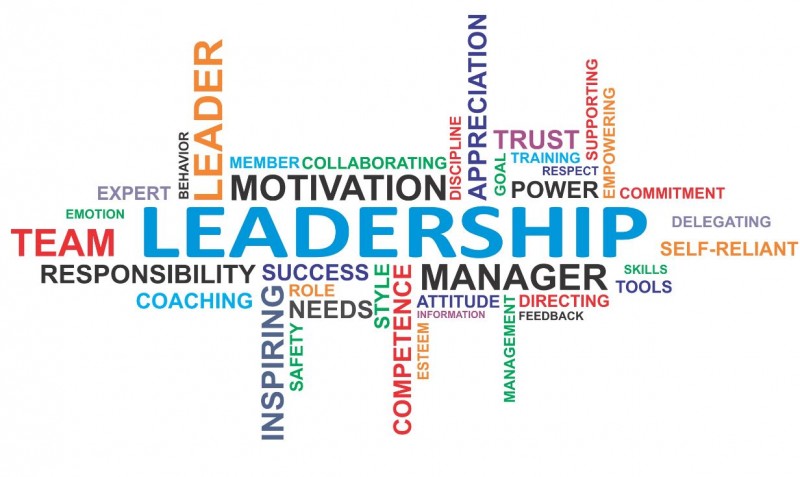
Introduction
Effective leadership is a crucial aspect of any organization or team's success. It requires a combination of specific traits and strategies that empower leaders to inspire, motivate, and guide their followers towards achieving common goals. This article explores the psychology behind effective leadership, highlighting key traits and strategies that contribute to successful leadership.
Traits and Strategies for Effective Leadership
Understanding Effective Leadership
Effective leadership encompasses the ability to guide individuals or a team towards achieving goals and delivering optimal results. It involves the skillful utilization of various traits and strategies that inspire and motivate others to perform at their best.
Key Traits of Effective Leaders
Visionary Thinking
Effective leaders possess visionary thinking, which involves the ability to envision a future state and articulate a clear and compelling vision to others. They have a strategic mindset and can align their team's efforts with the organization's overarching goals.
Emotional Intelligence
Emotional intelligence is another essential trait of effective leaders. Leaders with high emotional intelligence understand and manage their own emotions and are empathetic towards others. They can effectively navigate challenging situations and build strong relationships based on trust and mutual respect.
Integrity and Authenticity
Leaders who demonstrate integrity and authenticity inspire trust and loyalty among their followers. They act ethically, maintain consistency between their words and actions, and remain true to their values. Authentic leaders are genuine and transparent, fostering a culture of openness and honesty.
Adaptability and Resilience
Effective leaders adapt to changing circumstances and demonstrate resilience in the face of adversity. They embrace innovation, stay flexible, and encourage their team members to learn from failures and setbacks. These leaders effectively navigate challenges and keep the team motivated towards achieving their goals.
Strategies for Effective Leadership
Building Strong Relationships
Effective leaders prioritize building strong relationships with their team members. They actively listen to their concerns, provide support and guidance, and create a sense of belonging and camaraderie within the team. By fostering positive relationships, leaders encourage collaboration and enhance overall team performance.
Communicating Effectively
Communication is a vital aspect of effective leadership. Leaders need to clearly articulate their expectations, share information transparently, and actively listen to their team members' perspectives. Effective communication fosters trust, enhances productivity, and ensures alignment towards shared objectives.
Empowering and Delegating
Successful leaders empower their team members by delegating tasks and responsibilities. They trust their team's capabilities, provide them with autonomy, and encourage innovation and creativity. Empowerment and delegation not only distribute workload but also foster personal and professional growth within the team.
Promoting a Positive Organizational Culture
Leaders play a significant role in shaping an organization's culture. They promote a positive work environment by encouraging teamwork, recognizing and appreciating achievements, and fostering a culture of continuous learning and improvement. A positive organizational culture enhances employee engagement and contributes to overall success.
The Role of Emotional Intelligence in Leadership
Emotional intelligence refers to the ability to recognize and manage one's emotions and understand the emotions of others. In leadership, emotional intelligence plays a critical role in establishing strong relationships, resolving conflicts, and inspiring and motivating team members.
Leading with Integrity and Authenticity
Integrity is the foundation of effective leadership. Leaders who act with integrity gain the trust and respect of their followers. Authenticity, on the other hand, involves being true to oneself and maintaining congruence between personal values and actions. Leaders who lead with integrity and authenticity create an environment of trust and transparency.
The Power of Visionary Thinking
Visionary leaders possess a clear and inspiring vision for the future. They effectively communicate this vision to their team members, aligning their efforts and motivating them to achieve shared goals. Visionary thinking allows leaders to anticipate future challenges and opportunities, guiding their decisions and actions accordingly.
Adaptability and Resilience in Leadership
Leaders face constant challenges and uncertainties. The ability to adapt and remain resilient is crucial for navigating through such situations. Adaptive leaders embrace change, encourage innovative thinking, and respond proactively to unexpected circumstances. They also cultivate resilience within their team, helping them bounce back from setbacks and maintain motivation.
Building Strong Relationships as a Leader
Effective leaders understand the significance of building strong relationships with their team members. They invest time and effort in getting to know their team on a personal level, actively listening to their concerns, and providing support and guidance. Strong relationships foster trust, open communication, and collaboration within the team.
Effective Communication for Leaders
Communication skills are essential for effective leadership. Leaders must communicate their expectations, provide clear instructions, and share information in a timely and transparent manner. Active listening is equally important, as it helps leaders understand their team members' perspectives and address their concerns effectively.
Empowerment and Delegation in Leadership
Empowering and delegating tasks to team members is crucial for effective leadership. Leaders identify the strengths and capabilities of their team members and assign tasks accordingly. By empowering others and delegating responsibilities, leaders promote individual growth and allow team members to contribute their unique skills and expertise.
Promoting a Positive Organizational Culture
Leaders influence the organizational culture through their actions and behaviors. They foster a positive culture by promoting teamwork, recognizing achievements, and encouraging a supportive and inclusive work environment. A positive organizational culture enhances employee satisfaction, engagement, and overall productivity.
Conclusion
Effective leadership requires a combination of specific traits and strategies that empower leaders to inspire, motivate, and guide their followers towards success. By cultivating visionary thinking, emotional intelligence, integrity, adaptability, and other key traits, leaders can create a positive work environment, build strong relationships, and communicate effectively. Through these efforts, leaders can foster a culture of collaboration, innovation, and continuous improvement, driving the organization or team towards achieving its goals.
The Rise of Social Entrepreneurship: Doing Well by Doing Good
The Role of Big Data in Business Decision-Making
Godrej Aerospace to start Manufacturing parts for Boeing and Airbus